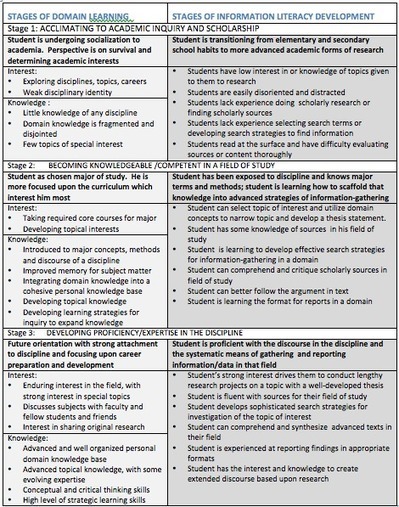Web evaluation has been a standard information literacy offering for years and has always been a challenging topic for instruction librarians. Over time, the authors had tried a myriad of strategies to teach freshmen how to assess the credibility of Web sites but felt the efforts were insufficient. By familiarizing themselves with the cognitive development research, they were able to effectively revamp Web evaluation instruction to improve student learning. This article discusses the problems of traditional methods, such as checklists; summarizes the cognitive development research, particularly in regards to its relationship to the ACRL Information Literacy Standards; and details the instructional lesson plan developed by the authors that incorporates cognitive development theories.
Research and publish the best content.
Get Started for FREE
Sign up with Facebook Sign up with X
I don't have a Facebook or a X account
Already have an account: Login
Literacy in a digital education world and peripheral issues.
Curated by
Elizabeth E Charles
 Your new post is loading... Your new post is loading...
 Your new post is loading... Your new post is loading...
|
|










